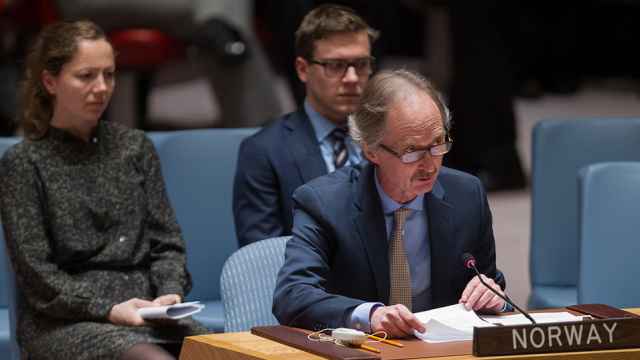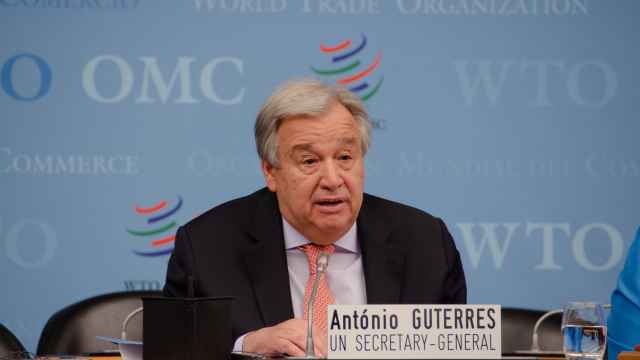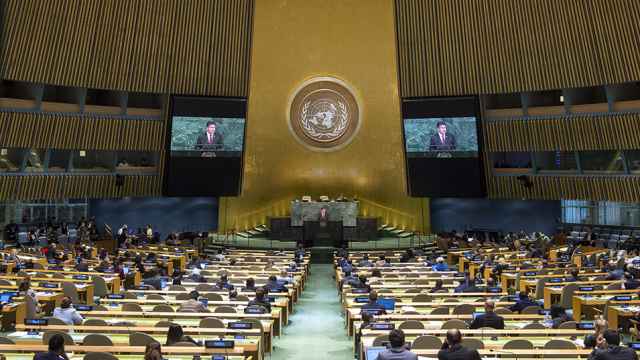The new U.S. envoy to the United Nations on Thursday accused Russia of seeking to stymie efforts to hold the government of Syrian leader Bashar al-Assad accountable for its use of chemical weapons during its long civil war.
"We all know the Assad regime has repeatedly used chemical weapons. So why hasn't the Syrian government been held accountable?" the ambassador, Linda Thomas-Greenfield, told a Security Council meeting via videoconference.
"The answer is sadly simple: the Assad regime has tried to avoid accountability by obstructing independent investigations and undermining the role and work" of the Organization for the Prohibition of Chemical Weapons (OPCW), she said.
"And the regime's allies, in particular Russia, have also sought to block all efforts to pursue accountability," added the U.S. diplomat, who was participating in her first Security Council meeting since taking over as President Joe Biden's envoy.
"Russia has defended the Assad regime despite its chemical weapons attacks, it has attacked the professional work of the OPCW, and it has undermined efforts to hold the Assad regime accountable for its use of chemical weapons and numerous other atrocities."
Moscow's UN envoy, Vassily Nebenzia, defended Damascus, saying: "On Russia's advice, Syria has abided by the OPCW in good faith, and has gotten rid of its chemical weapons arsenal" — a claim greeted with skepticism in the West.
He also mocked Thomas-Greenfield, who holds the council's rotating presidency for March, for being a bit wordy in what was meant to be a "brief" intervention to start the proceedings.
"We all always try to be brief, but it's not always possible," he said before launching into what he called "a brief and useful historical recap on Council deliberations" — seemingly chiding Thomas-Greenfield for being a newbie.
According to the United Nations, which has accused Assad's regime of carrying out chemical attacks against its own citizens in the past, Damascus has for years not replied to a series of 19 questions about its weapons installations, which could have been used to stock or produce chemical weapons.
OPCW investigators have accused Assad's regime of sarin gas and chlorine attacks in Syria in 2017.
Syria's UN envoy Bassam Sabbagh refuted the U.S. accusation, insisting Damascus was in compliance with international law.
"Syria rejects this hostile and politicized argument," he said.
A Message from The Moscow Times:
Dear readers,
We are facing unprecedented challenges. Russia's Prosecutor General's Office has designated The Moscow Times as an "undesirable" organization, criminalizing our work and putting our staff at risk of prosecution. This follows our earlier unjust labeling as a "foreign agent."
These actions are direct attempts to silence independent journalism in Russia. The authorities claim our work "discredits the decisions of the Russian leadership." We see things differently: we strive to provide accurate, unbiased reporting on Russia.
We, the journalists of The Moscow Times, refuse to be silenced. But to continue our work, we need your help.
Your support, no matter how small, makes a world of difference. If you can, please support us monthly starting from just $2. It's quick to set up, and every contribution makes a significant impact.
By supporting The Moscow Times, you're defending open, independent journalism in the face of repression. Thank you for standing with us.
Remind me later.






